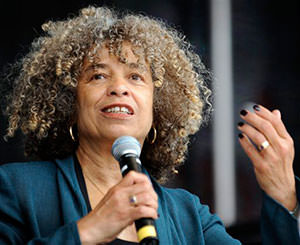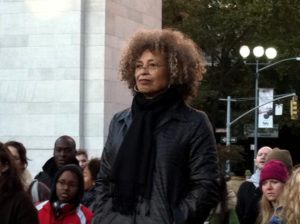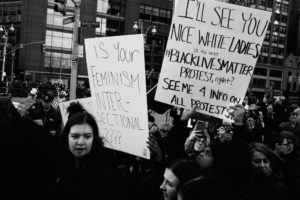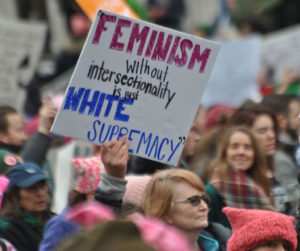Rethinking Black History Month
The modern civil rights movement occurred long before millions of Americans were born, but many participants and observers are still available to recount their stories.
For many years, I have dutifully accepted invitations to speak at various gatherings about African-American history and culture during Black History Month in February. After all, I am a curiosity, even an “exotic,” as a non-African-American teaching African-American Studies at UCLA. Frequently, I used my presentations to offer a personal perspective as a veteran of the civil rights movement, giving my college, high school and community audiences a chance to talk to someone who had been on the front lines of the struggle for racial justice in the South and California during the 1960s.
On other occasions, I took the opportunity to correct various historical superficialities and misimpressions, especially among younger crowds. For example, I often explained that Rosa Parks had been a committed social activist, not an “older lady” who was too tired to move to the back of the bus, and that President John F. Kennedy had a less stellar record on civil rights than many romanticized accounts suggested. Nevertheless, I shared the view of many of my students, colleagues and friends that Black History Month was too little and too late, a ghettoized response to a much deeper inadequacy of American education. Ritualized repetitions of Dr. Martin Luther King Jr.’s “I Have a Dream” rhetoric and George Washington Carver’s scientific discoveries, after all, are scarcely the only African-American contributions to American life.
So although I regularly participated in Black History Month activities, my enthusiasm was tepid at best; my opinion was simply that a small exposure to a neglected historical tradition was better than nothing. I believed (and still believe) that African-American history should be taught throughout the year and presented in much greater depth. I was frustrated each year in seeing the same paeans to black luminaries and the continued absence of the vast majority of endeavors reflecting the long, unbroken history of African-American struggle and achievement.
I have had occasion to rethink my perspective, although slightly. Some recent speaking experiences have persuaded me that younger student audiences are especially receptive to a more expansive outlook on African-American themes and topics. I just returned from a speaking tour throughout Germany, with high school, university and public attendees. I found these crowds especially engaged by my firsthand account of my experiences in some historic civil rights pursuits.
These young Germans seemed particularly fascinated by the narrative of American racism and its linkage to broader historical issues of race and oppression — a topic with obvious relevance to Germany even more than six decades after the Holocaust. A resurgence of neo-Nazi activity in the country makes the matter especially pertinent. Many of the students with whom I spoke noted that they had personally seen racist incidents and were interested in countering them by joining resistance efforts modeled on the U.S. civil rights struggles.
These European students were also fascinated to learn about other African-Americans who were absent from their curricula. Names such as Ida B. Wells, W.E.B. Du Bois, Paul Robeson and A. Philip Randolph were usually new to these listeners, and I was delighted with their levels of curiosity and interest in exploring these iconic figures on their own. I don’t believe this reaction is limited to European settings.
In several U.S. Black History Month presentations in the past few years, I have encountered comparable curiosity among younger audiences when I talk about my experiences of a half century ago. Using those stories as the foundation, I have discovered that American students are eager for historical narratives that involve real life accounts of the striving for racial equality and justice. They have often expressed to me a desire to hear more such accounts in school rather than the duller recitations of names and dates that too often pass for history instruction.
Black History Month commemorations can take advantage of the fact that the modern civil rights movement, for students in high school and colleges and universities, is truly historical. The Montgomery Bus Boycott; the integration battle at Central High School in Little Rock, Ark., the March on Washington; the agitation for the Civil Rights Acts of 1964 and 1965; and many other dramatic events all occurred long before today’s students were born. But many participants and observers are still available to recount these stories, with powerful and enduring educational impact. Black History Month could be a beneficial time to take advantage of their willingness to share their experiences with younger generations.
The most valuable educational feature of Black History Month lies in discussing the broader implications of African-American struggles. I used my presentation at Humboldt University in Berlin to suggest that racism was still a major reality in American life, despite the re-election of Barack Obama as president. Racial profiling; housing discrimination; the resegregation of U.S. public schools; the growth of the prison-industrial complex; the disenfranchisement of African-American and Latino voters; and many other problems suggest that the battles against racism need to remain a priority.
I concluded my talk in Berlin with what may well be the most valuable feature of Black History Month: expressing the connection between the African-American freedom movement and other efforts to advance progressive social change in the United States and elsewhere. In the 1960s and ’70s, civil rights endeavors spawned a wide range of other movements including ones focused on feminists, Chicanos, gays and lesbians, and against the Vietnam War.
Those ties remain today. President Obama noted them in his inauguration address when he traced American social progress from Seneca Falls to Selma to Stonewall. At my Humboldt University Black History Month talk, I noted that the civil rights fervor of a few generations ago could and should be applied to the present feminist fight for genuine wage equality and against the erosion of reproductive rights and the threat of sexual assaults and harassment. Similarly, I suggested that the young Chicanos and other “undocumented” immigrants working for passage of the DREAM Act and against deep-seated American xenophobia are also implementing the moral vigor of the civil rights movement of the recent past. Finally, I identified the increasingly successful gay and lesbian drive for same-sex marriage as a dramatic example of a modern civil rights crusade.
This close relationship between African-American experiences and those of other oppressed peoples scarcely diminishes the importance of black history. Instead, it enhances the remarkable political and moral contributions of people of African descent by showing how pervasive their influence has truly been, especially in recent decades. A more extensive expression of African-American history, even when presented initially and most fully in February, elevates the goal of a more comprehensive inclusion of the black perspective throughout the entire year and within educational institutions. That is why I will continue to use Black History Month to move in that direction and to encourage my students and colleagues to do the same.
Your support matters…Independent journalism is under threat and overshadowed by heavily funded mainstream media.
You can help level the playing field. Become a member.
Your tax-deductible contribution keeps us digging beneath the headlines to give you thought-provoking, investigative reporting and analysis that unearths what's really happening- without compromise.
Give today to support our courageous, independent journalists.





You need to be a supporter to comment.
There are currently no responses to this article.
Be the first to respond.